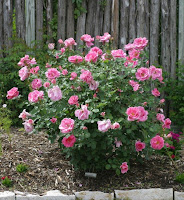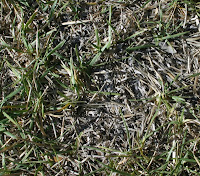
Rose pruning is a topic that comes up each year about this time. Gardeners want to know the best way to prune a rose bush. I have often been frustrated by the lack of a simple, clear answer to that question. All roses are not created equal. There are a number of types, hybrid teas, floribundas, grandifloras, minatures, climbers, "antique" roses, shrub or hedge roses, etc. This defies attempts to create a one size fits all approach to pruning. Instead you need to start with what type of rose you have and its growth habit. Then a useful approach to pruning can be prescribed.
The following web sites are very helpful in guiding a gardener in understanding the best approach pruning their roses, whatever the type:
Pruning Methods by AgriLife Extension is a good guide to spring and fall pruning, as well as summer care. It is simple, straightforward, and probably the best place to start for a new rose grower. If they would add diagrams or photos it would be great.
Pruning Diagrams from Mississippi State Extension provides some very helpful drawings to make the approach to pruning much clearer.
Pruning Roses by the American Rose Society offers several helpful articles on pruning. Keep in mind that these articles are written in various parts of the country so some comments and suggestions may not be completely applicable to central Texas.




